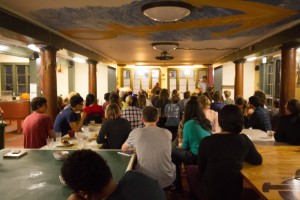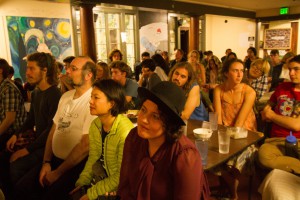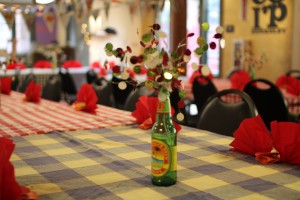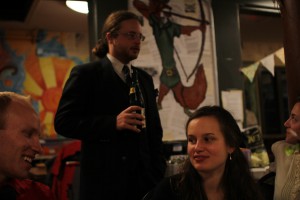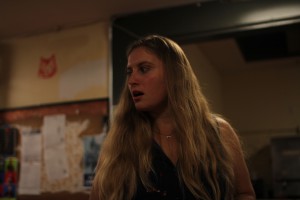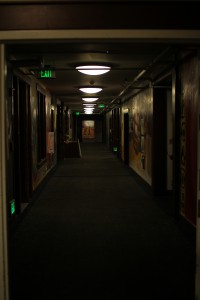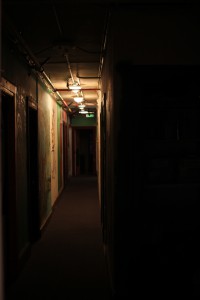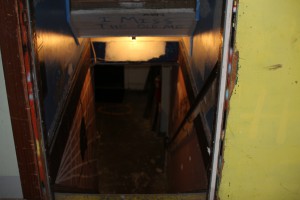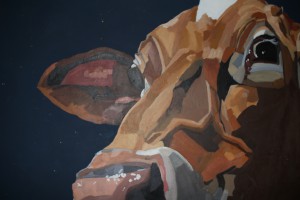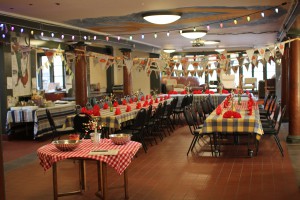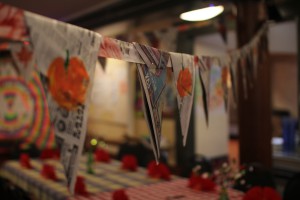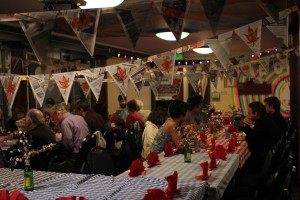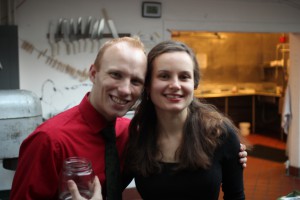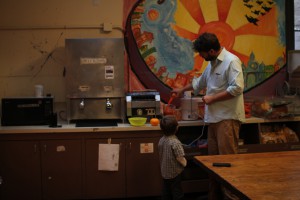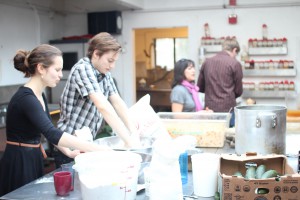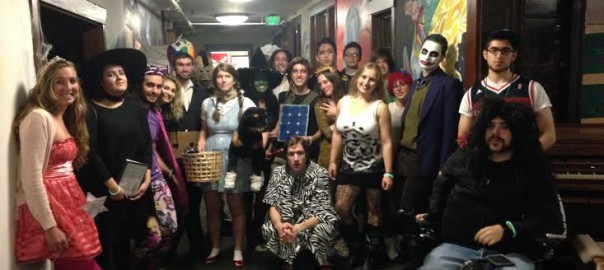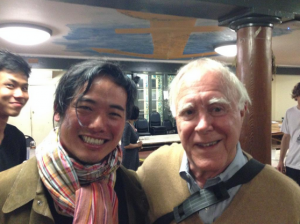
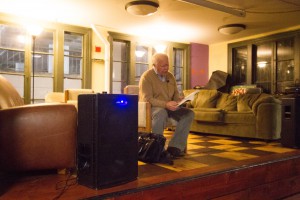
On October 22nd, Cloyne Court had the distinct honor of hosting Ken Ueno of the University’s music department, and former Poet Laureate, Robert Hass. As the hour of the event approached, eager members from all the various houses of the BSC, several representatives of our administrative staff, and members of the greater Berkeley community began to shuffle in with expectant looks upon their faces. Upon arrival, the distinguished guests were shown into the great hall for a dinner which stood out as one of the finer meals served this semester, overseen by the laudable Robby Rose and his exemplary crew of Sous Chefs.
As dinner commenced to an loud round of applause, it became apparent that the room was fuller than it had yet been over the course of the semester. Dinner went off with nary a hitch, and its conclusion meant that it was time to begin the event. Our social and academic theme managers took the stage to briefly thank all those in attendance, introduce the speakers, explain the intricacies of our Karma box (to little avail), and commence the event.
Robert Hass was first to take the stage and did so to a rather thunderous outpouring of support from the audience, so thunderous in fact that he appeared visibly taken aback. After settling himself in with a small amount of chit chat, he produced a book of his verse and asked all those in attendance if he ought to do some readings. The audience was thoroughly in favor of the idea. He flipped through the pages of the book a bit and selected a poem he described as one dealing with sounds, presumably hinting at the nature of Mr. Ueno’s upcoming performance. He read through his first selection at a measured pace, allowing for several pregnant pauses such that the audience could appreciate his verse. He concluded to a flurry of appreciative snaps and then began to search for his next selection.
He paused, looked up and asked the audience, “What would you like to hear? Political poems, art Poems, sex poems?” There were some murmurings and subdued giggles out from which the voice of a very brave Cloaca came forth demanding, “sex poems!” The giggling mutated into laughter and applause as Mr. Hass, looking rather pleased, began to scan his book again to fulfill the audience’s request.
He proceeded to read several deep and thought provoking poems, that dealt in some manners with sex, but more so with themes of sadness, beauty, and love. The snaps carried on as he charmed us with his verse over the next half hour or so, and then he departed the stage so that Mr. Ueno could charm us equally with his chosen art.
Mr. Ueno began his presentation by relating his history with music and his approach to his chosen instrument, the voice. He stressed the importance of seeing the voice as a multifaceted instrument that was capable of making more than the standard sounds we’re accustomed to. To great effect, he demonstrated what he styled as an amalgamation of a howl, a scream, a note, and the intonation of a metal singer hard at work. He proceeded to render unto us a piece of music of his own composition which, to some extent, eludes description. He started with a blood curdling scream and slid into sounds reminiscent of a tempestuous wind. As his vocal chords vibrated with great intensity, he violently swung the microphone back and forth in front of his mouth, pausing to grip it tightly in his hand to coax yet more sounds into his composition. He finished with a flurry of impressively deep and guttural moans and screeches that were as haunting as they were thrilling.
With the conclusion of both their respective performances, Mr. Hass and Mr. Ueno took the stage together and began to have a surprisingly natural conversation that was thoroughly engaging. Though the conversation was guided by audience questions, it appeared far more the case that we were witnessing an idle conversation between two exceptionally intelligent and interesting individuals. They covered a surprising array of topics, from linguistics, to art, to rhythm in poetry and in music, and much to the appreciation of what were undoubtedly a decent number of burgeoning artists in attendance, the perils and pitfalls of pursuing a career in the arts.
As with all things, the evening drew to a close with another round of applause and appreciation from the audience as our visiting dignitaries abandoned their place on the stage and fled off to wherever and whatever they call home.
Afterward, two older members remarked that though they had known both of our speakers individually over the years, they had never seen them interact together, and that they had been incredibly impressed that they got on so well together. Overall, it proved to be a truly enjoyable evening and quite the feather for Cloyne Court’s academic cap.
-CloAca
